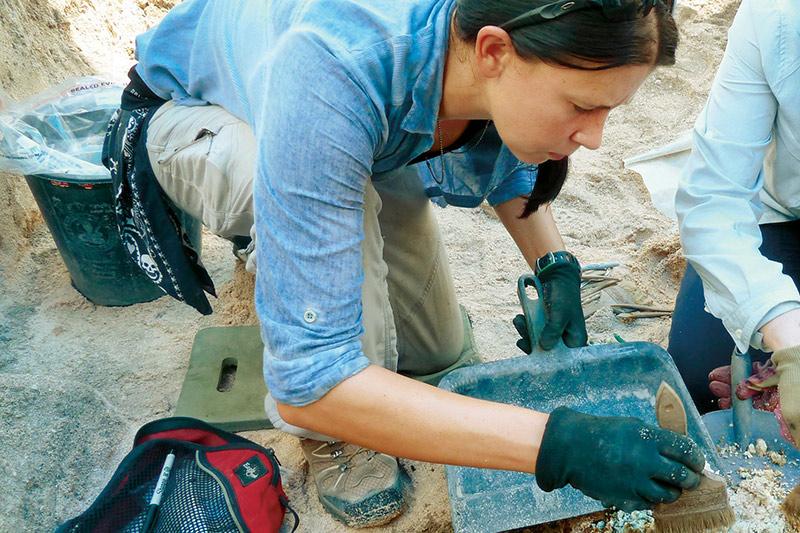Digging up the past
Tulane alumna Kristen Baker was just 9 years old when her father died unexpectedly, and she remembers how not knowing what happened sharpened the pain of grief.
“It took several months before the reports came back,” says the Georgia native, now 32. “That made his death even harder.”
More than two decades later, Baker is doing her best to provide closure for families as the lead archaeologist in a nonprofit’s effort to recover the remains of hundreds of U.S. Marines killed in the bloody 1943 battle of Tarawa in the Pacific Ocean. In March 2015 she found a long-lost trench known as Cemetery 27, which has yielded the bodies of more than 45 Marines, including a Medal of Honor recipient, making it the largest single-site recovery in U.S. history.
“We want to bring them all home. They deserve that respect, and so do their families.”
Kristen Baker
The battle of Tarawa was nasty, brutish and short, killing more than 1,100 Americans and 5,000 Japanese in just 76 hours. The dead were hastily buried, and military officials who returned to the site after the war found fewer than half. Families of the missing were told they had been buried at sea or otherwise accounted for.
Mark Noah, founder of History Flight, learned of the long-buried bodies in 2007 from an obscure military report. The next year he began sending teams armed with the latest technology to scour the hot, polluted, crowded sands of the island for the lost graves.
After earning her master’s degree in anthropology at Tulane, Baker did forensic work. Noah hired her to helm History Flight’s Tarawa project in 2013. She recovered the remains of Pvt. Randolph Allen after only a month on the job. Despite another scientist’s dismissal of the site as unpromising, Baker obtained permission to dig exploratory trenches in a private shipping yard in March 2015. On the first day, the team found the first of dozens of Marine skeletons; Baker had located Cemetery 27.
Baker worked the excavation in blazing tropical heat nearly every day for the next three months, exposing and carefully removing bones and then documenting the remains in a makeshift local lab. Hundreds more Marines still lie sleeping in the sands of Tarawa, but Kristen Baker hasn’t stopped looking for them.
“Cemetery 27 has been a kind of crown jewel for us,” she says. “But we want to bring them all home. They deserve that respect, and so do their families.”

